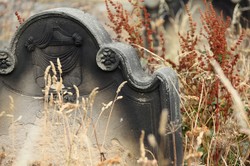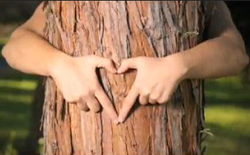Before my father died in 1986, he spent a few weeks in ICU (Intensive Care Unit.)
You would think that this period of time would give me time to come to terms with my loved ones subsequent death, but, sometimes it may not be the case.
Even though a death can sometimes be expected, it still doesn't help to lessen the pain or shock that you may feel when it eventually occurs.
How to cope when someone is terminally ill
There is no easy answer to this question. The circumstances surrounding your loved one's ill health, your relationship with each other at the time, other family members etc. will all dictate to you how you deal with the situation.
The best thing you can do is:
a) Do what you feel is best for you at the time. Don't be pressured into doing anything you don't want to do by others.
b) Take the time to say goodbye to your loved one. It will be hard but you will feel less guilt when eventually they pass away.
Process of Recovery
'Some get stuck somewhere in the process of recovery and need help. Others are so affected by their bereavement that the grief gets out of hand. In such cases, treatment as well as assistance is needed, counsel as well as care.'




























 Understanding Depressionon 12/05/2024
Understanding Depressionon 12/05/2024
 The Mystery Predators of Britainon 12/05/2024
The Mystery Predators of Britainon 12/05/2024
 Support Your Local Pet Rescue Charityon 12/05/2024
Support Your Local Pet Rescue Charityon 12/05/2024
 Could Equine Assisted Therapy Benefit Those With Personality Disorderson 12/05/2024
Could Equine Assisted Therapy Benefit Those With Personality Disorderson 12/05/2024


Comments
Thank you for all the analyses, observations and suggestions.
The first action under the fifth subheading, Help ease the pain of grief, concerns "Roadside Memorials - A controversial subject."
Just down the road, at a grassy island, a teenaged girl died. Her mother has a statue of Our Lady Mary with (regularly changed cut, fresh) flowers. The accidental death is from before the COVID shutdown even as the mother never is one to miss a visit in 5-plus years.
Her daughter in her afterlife perhaps might feel so loved and remembered, mightn't one think, with such a lovely Marian memorial?
It must help her mother, not with her at the time of dying.
The roadside memorial commemoratively niches a pleasant place, in a predominantly rural historic county, across from a neighborhood convenience-store gas-station stop on one side and a horse farm on another and amidst country homes.
Opting not to be present at a death of a loved one is sad. Only last year I was present when my brother in law died. It was a poignant moment, but I had prepared by leading prayers at the bedside. The moment of death is not horrible, it has a profound thought provoking character.
Thank you!
Your father, from the afterlife, must appreciate that you note both his 8-year presence and his 8-year absence.
Some people opt not to be there when someone beloved or essential passes away.
It seems to me a prescient option for the younger ages who perhaps would be even more damaged by nightmares from patient pain than by sorrow over not having been there, correct?
I can say that, yes, I am and it still gives me problems even now.
The second paragraph in your introduction and the first paragraph in the second subheading, We all need answers, respectively advise us of a 16-year-old and an 8-year-old experiencing paternal death and parental separation.
Might you not be drawn again and again back in the depression stage mentioned in the fifth paragraph to the first subheading, The grief process, had there been a father-daughter interaction during his last 8 years as attractive and frequent as that during your first 8 years?
Thank you for sharing your personal experience of grief.